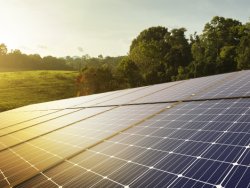Current gap in CBAM coverage
Although CBAM is already applied to carbon-intensive materials such as steel, aluminum, and glass, it does not apply to finished solar products that rely heavily on these inputs. A typical 22 kg solar module contains 14 kg of glass and three kg of aluminum, which are subject to CBAM when imported separately. However, foreign manufacturers, especially from China, can export finished products to the EU without facing the same carbon costs.
This imbalance means that EU producers have to buy CBAM certificates for raw materials, while foreign producers circumvent carbon pricing, undermining EU climate targets and industry competitiveness.
Prevention and feasibility
ESMC emphasized that extending CBAM to solar products would act as an anti-circumvention measure, preventing untaxed carbon embedded in imports from entering the EU. Most solar panel manufacturers already disclose emissions data through Environmental Product Declarations (EPDs) or the French Certisolis program, making compliance both practical and verifiable.
Strategic alignment with EU policy






